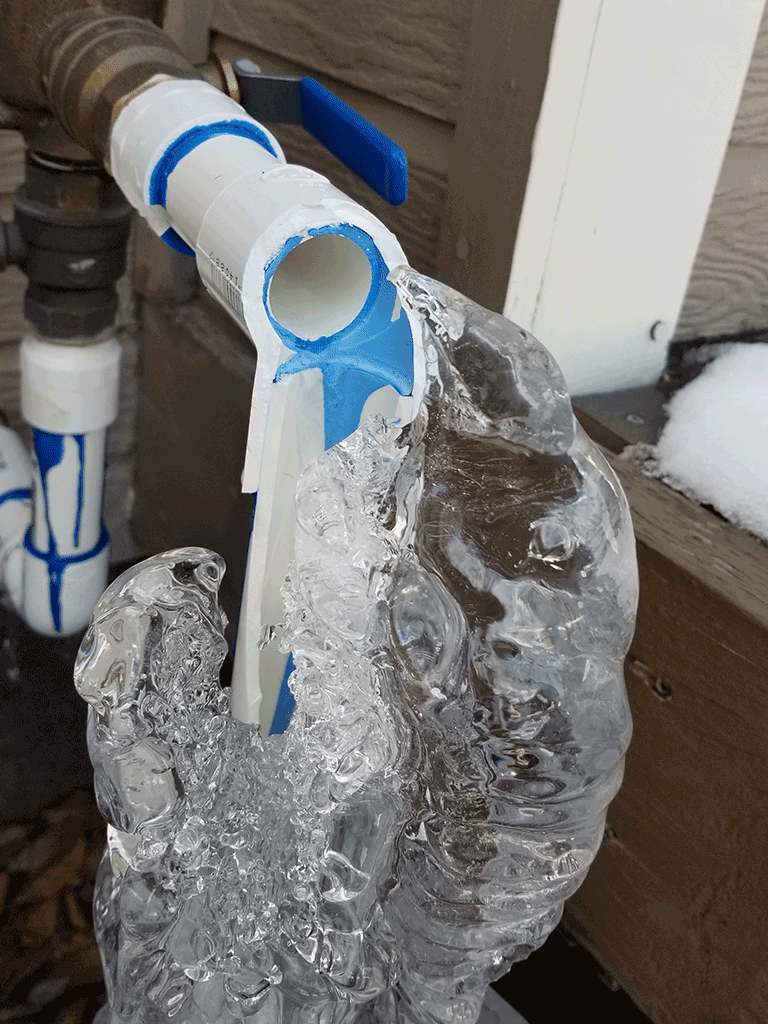Crucial Tips to Avoid Frozen Plumbing in Winter
Crucial Tips to Avoid Frozen Plumbing in Winter
Blog Article
We have encountered the article about 6 Ways to Prevent Frozen Pipes down the page on the internet and felt it made perfect sense to share it with you on this site.

Cold weather can ruin your pipes, especially by freezing pipes. Here's exactly how to avoid it from taking place and what to do if it does.
Intro
As temperature levels decrease, the danger of icy pipelines rises, potentially resulting in pricey fixings and water damages. Understanding how to stop frozen pipelines is vital for property owners in cold environments.
Avoidance Tips
Protecting vulnerable pipes
Cover pipes in insulation sleeves or utilize heat tape to safeguard them from freezing temperature levels. Concentrate on pipelines in unheated or exterior locations of the home.
Heating methods
Keep interior spaces appropriately heated, particularly locations with pipes. Open up closet doors to permit cozy air to flow around pipelines under sinks.
Exactly how to identify frozen pipes
Look for reduced water flow from taps, unusual odors or noises from pipelines, and visible frost on exposed pipelines.
Long-Term Solutions
Architectural adjustments
Take into consideration rerouting pipelines away from exterior wall surfaces or unheated areas. Include extra insulation to attics, cellars, and crawl spaces.
Upgrading insulation
Invest in top notch insulation for pipes, attic rooms, and walls. Proper insulation assists keep regular temperatures and minimizes the risk of icy pipelines.
Securing Outdoor Pipes
Garden tubes and exterior faucets
Disconnect and drain pipes garden hose pipes prior to wintertime. Mount frost-proof spigots or cover exterior taps with shielded caps.
Comprehending Icy Pipelines
What triggers pipelines to freeze?
Pipes ice up when exposed to temperatures below 32 ° F (0 ° C) for expanded durations. As water inside the pipes freezes, it increases, taxing the pipe walls and possibly creating them to burst.
Dangers and damages
Icy pipes can bring about supply of water disturbances, home damages, and costly repair services. Burst pipes can flooding homes and cause comprehensive structural damage.
Signs of Frozen Water Lines
Determining icy pipes early can avoid them from bursting.
What to Do If Your Pipes Freeze
Immediate activities to take
If you believe frozen pipelines, keep taps open to ease stress as the ice thaws. Utilize a hairdryer or towels soaked in hot water to thaw pipes gradually.
Verdict
Avoiding icy pipelines requires positive steps and quick feedbacks. By recognizing the causes, indications, and preventive measures, property owners can protect their pipes throughout cold weather.
5 Ways to Prevent Frozen Pipes
Drain Outdoor Faucets and Disconnect Hoses
First, close the shut-off valve that controls the flow of water in the pipe to your outdoor faucet. Then, head outside to disconnect and drain your hose and open the outdoor faucet to allow the water to completely drain out of the line. Turn off the faucet when done. Finally, head back to the shut-off valve and drain the remaining water inside the pipe into a bucket or container. Additionally, if you have a home irrigation system, you should consider hiring an expert to clear the system of water each year.
Insulate Pipes
One of the best and most cost-effective methods for preventing frozen water pipes is to wrap your pipes with insulation. This is especially important for areas in your home that aren’t exposed to heat, such as an attic. We suggest using foam sleeves, which can typically be found at your local hardware store.
Keep Heat Running at 65
Your pipes are located inside your walls, and the temperature there is much colder than the rest of the house. To prevent your pipes from freezing, The Insurance Information Institute suggests that you keep your home heated to at least 65 degrees, even when traveling. You may want to invest in smart devices that can keep an eye on the temperature in your home while you’re away.
Leave Water Dripping
Moving water — even a small trickle — can prevent ice from forming inside your pipes. When freezing temps are imminent, start a drip of water from all faucets that serve exposed pipes. Leaving a few faucets running will also help relieve pressure inside the pipes and help prevent a rupture if the water inside freezes.
Open Cupboard Doors
Warm your kitchen and bathroom pipes by opening cupboards and vanities. You should also leave your interior doors ajar to help warm air circulate evenly throughout your home.

I have been very fascinated with How To Avoid Freezing Pipes and I am assuming you appreciated the new post. Do you know someone else who is involved in the niche? Take a moment to share it. Thanks a lot for going through it.
Find Out More Report this page